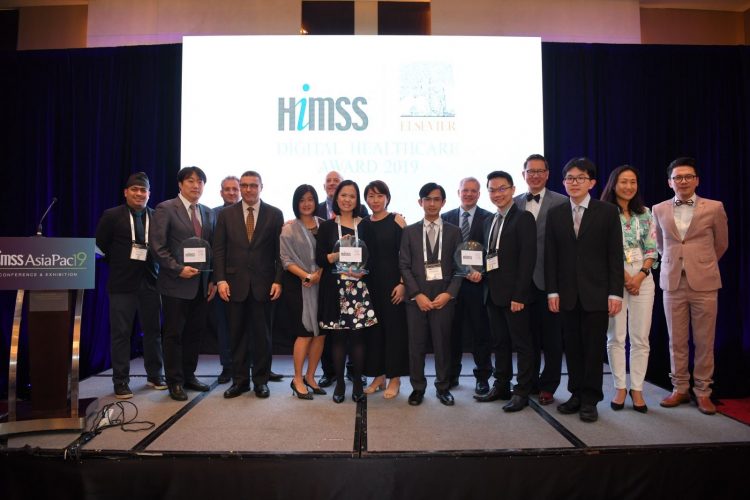The Annual HIMSS-Elsevier Digital Healthcare Award is a form of recognition to organisations for their outstanding innovation and achievement in implementing and utilizing health information and technology to improve patient care and safety.
There were four finalists shortlisted per award category, namely: Outstanding ICT Innovation and Outstanding ICT Achievement; with two winners announced per category for this year.
The Award winners were announced last week at an exclusive gala dinner ceremony during the HIMSS AsiaPac19 Conference in Bangkok, Thailand.
The team from Thailand’s Faculty of Medicine, Chulalongkorn University and Bumrungrad Hospital, for its project “Deep Learning for Automated Classification of Tuberculosis-Related Chest X-Ray (DAC4TB)” won the Outstanding ICT Innovation Award. The team from Thailand was led by Asst Professor Dr Krit Pongpirul.
DAC4TB was initially a self-funded deep learning platform for active tuberculosis screening in resource-limited non-hospital settings. It has been tested and successfully deployed in both off-site and on-site settings. For off-site setting, DAC4TB can interpret as fast as 2 CXR images per second (120 images/minute). That means 100,000 CXR images taken from the mobile screening over a 5 month period could be interpreted in less than a day.
DAC4TB’s ability to rapidly screen all the CXR images and report a prioritized list of suspected individuals that require immediate attention – all without the need for an internet connection – means faster turnaround time in notifying individuals with either high tuberculosis scores or low confidence levels to undergo further testing and treatment.
The other winner in the Outstanding category was the Singaporean Team from Tan Tock Seng Hospital for its project “PreSAGE – A Smart Bed-Exit Prediction and Prevention System Based on Thermal Sensing”.
Tan Tock Seng Hospital (TTSH) co-developed PreSAGE – a smart bed-exit prediction and prevention system based on thermal sensing. Trained on 12,000 hours of real patient thermal data, PreSAGE provides accurate early warning based on machine learning models that predicts bed exit. The alarm is triggered whenever a positive bed-exit is predicted, and is disarmed automatically when a nurse is at bedside, and rearmed automatically when the patient is alone.
PreSAGE has been deployed in TTSH’s general wards, with studies that show a 99.7% sensitivity and 100% specificity. As the system requires minimal maintenance and is easy to setup, this will project to save up to 30% Nursing FTE for falls prevention surveillance and directly translates into safer care for patients, reduction in false alarms, better nursing productivity and essentially higher morale among the nurses.
The winners in the Outstanding ICT Achievement category were: Nanavati Super Specialty Hospital, India for its project “Operational Efficiency enhancement in the Discharge Process of Inpatients, by Implementing Operations BOTs Enabled Real-time Monitoring of the Discharge Process and the Patient Experience” and Seoul National University Bundang Hospital (SNUBH), South Korea for its project “The Clinical Data Warehouse, Health Information Exchange and Closed-Loop Medication Administration System (CLMA)”.
Managing Director for APAC Health Market, Elsevier, Mr. Jan Herzoff, commented at the end of the event, “Congratulations to the winners of the 2019 Asia Pacific HIMSS-Elsevier Digital Healthcare Award! Every year, it is a great privilege for Elsevier to recognize these outstanding health ICT innovations which are paving the way for better quality of care and patient outcomes. We hope to continue inspiring more organizations to strive towards digital transformation and excellence.”
The Asia Pacific edition of the HIMSS-Elsevier Digital Healthcare Award is now into its seventh year of recognizing ICT achievements and innovations across the region, with the Award also hosted in Europe, Middle East and Latin America.





